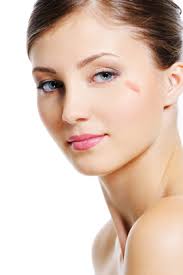Home remedies For Acne
Some Amazing Remedies for Acne
Acne is one of the most common skin diseases in the world and affects about 85% of people at some point in their lives.
Conventional acne treatments can be expensive and have undesirable side effects such as dryness, redness and irritation.
This has led many people to naturally investigate how to treat acne at home. The internet is full of suggestions, but is natural therapy really effective?
This article explores 13 acne treatments backed by science.
What causes acne?
Acne begins when the pores of the skin become clogged with oil and dead skin cells.
Each pore is connected to the sebaceous glands and produces oily substances called sebum. Extra sebum can block the pores and cause growth of bacteria known as Propionibacterium acnes or P. acnes.
Your white blood cells attack P. acnes causing skin irritation and acne. Some cases of acne are more severe than others, but common symptoms include whitehead, acne and acne.
Many factors contribute to the development of acne including genetics, diet, stress, hormonal changes and infections.
Below are 13 types of home remedies for acne that you want to try.
1. Apply Apple Cider Vinegar.
Apple cider vinegar makes an apple cider fermented or made from pressed apple juice that is not filtered.
Like other vinegar, it is well known for its ability to fight against many different bacteria and viruses (1, 2, 3).
Apple cider vinegar contains several organic acids found to kill P. acnes (4, 5).
In particular, succinic acid has been shown to inhibit the inflammation induced by P. acnes, which can prevent scarring (6).
In addition, lactic acid has been shown to improve the appearance of acne scars (7, 8). Apple cider vinegar helps to dry excess oil that causes acne.
How to use
Mix apple cider 1 vinegar and 3 portions of water (use more water for sensitive skin).
After cleansing, use a cotton swab to soften the skin gently.
Sit down for 5 to 20 seconds, rinse with water and tap.
Repeat this process once or twice a day as needed.
Applying apple cider vinegar to skin may cause burns and irritation, so always use small amounts and dilute with water.
summary:
Organic acids in apple cider vinegar can help to kill acne-causing bacteria and reduce the appearance of scars. If it is applied to skin, it may cause burns or irritation.
2. Importing zinc supplements
Zinc is an essential nutrient important for cell growth, hormone production, metabolism and immune function.
It is also one of the most studied natural remedies for acne. Studies have shown that people with acne tend to have lower zinc levels than skin with clear skin (9).
Several studies have shown that taking zinc can reduce oral acne.
In one study, 48 acne patients received oral zinc supplements three times a day. Eight weeks later, 38 patients reduced acne (10) by 80-100%.
Although the optimal zinc dose for acne has not been established yet, several studies have shown a significant reduction in acne using 30-45 mg zinc per day (11, 12, 13).
Elemental Zinc means the amount of zinc present in the compound. Zinc is available in several forms, each containing a different amount of zinc.
Zinc oxide contains the largest amount of zinc at 80%.
Zinc recommended safety maximum is 40 mg per day, so it is best not to exceed the amount unless you are under the supervision of a doctor. Too much zinc can cause side effects such as gastrointestinal pain and intestinal irritation.
It is also important to note that applying zinc to the skin is not effective.
This may be because zinc is not effectively absorbed through the skin.
summary:
People with acne have lower zinc levels than people with clear skin.
Several studies have shown that oral zinc can significantly reduce acne.
3. Make honey and cinnamon mask
Both honey and cinnamon are excellent antioxidants (14, 15, 16, 17, 18).
Studies have shown that applying antioxidants to skin is more effective in reducing acne than benzoyl peroxide and retinoids (19, 20, 21, 22).
These are two common acne remedies for skin with antibacterial properties.
The antioxidants studied are vitamin C derivatives such as vitamin B3, linoleic acid (omega-6) fatty acid and phosphate ascorbyl phosphate (SAP).
This particular antioxidant is not found in honey or cinnamon, but other antioxidants may have similar effects.
Honey and cinnamon also have the ability to fight bacteria and reduce inflammation, two of the causes of acne (23, 24, 25).
The anti-inflammatory, antioxidant and antibacterial properties of honey and cinnamon can help with acne-prone skin, but there is no study of their ability



Comments
Post a Comment